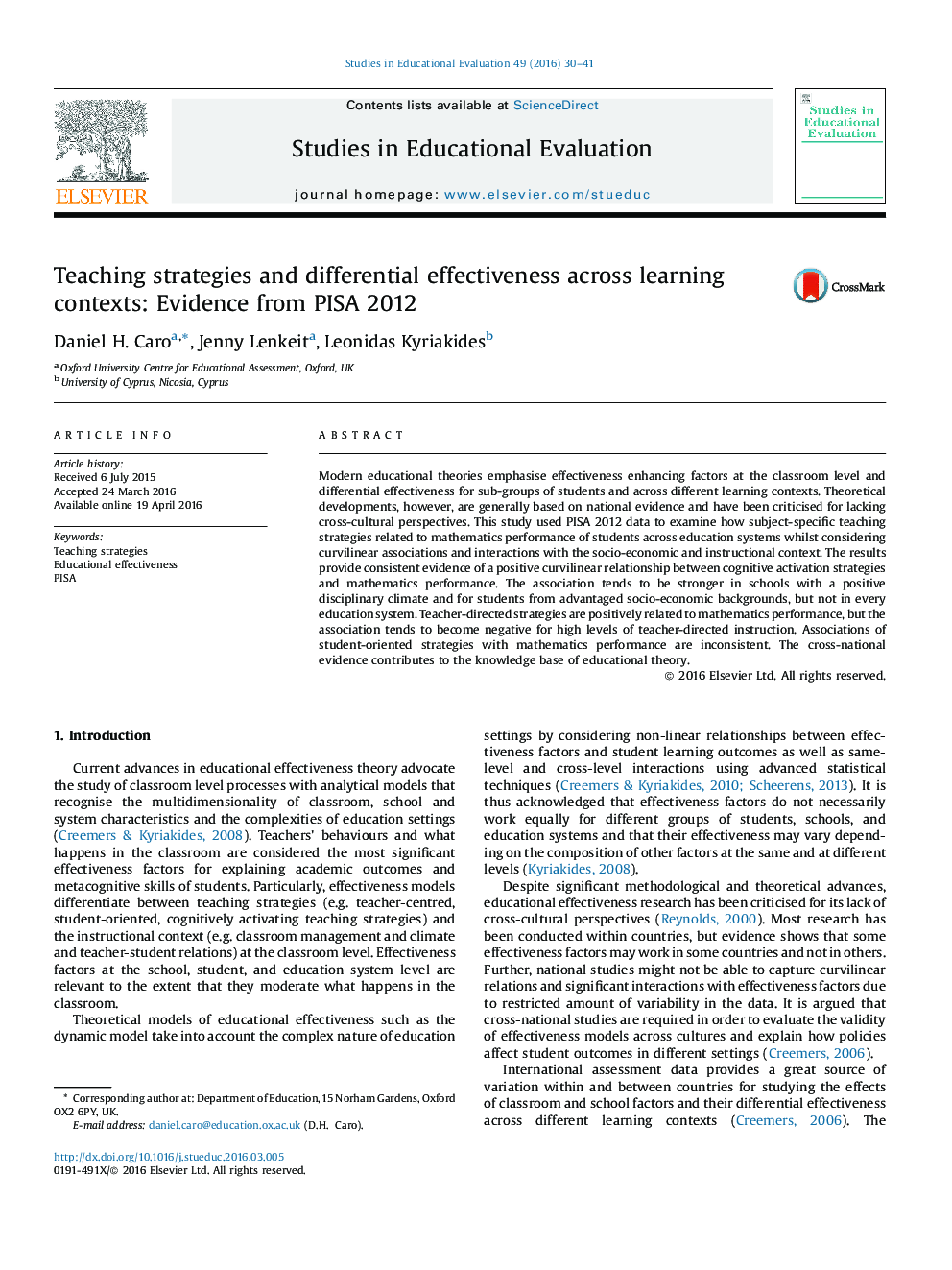| کد مقاله | کد نشریه | سال انتشار | مقاله انگلیسی | نسخه تمام متن |
|---|---|---|---|---|
| 372570 | 622125 | 2016 | 12 صفحه PDF | دانلود رایگان |
• Cognitive activation is positively related to mathematics performance.
• A positive disciplinary climate favours cognitive activation.
• Teacher directed instruction is positively related to mathematics performance.
• But high levels of directed instruction are negative for student performance.
Modern educational theories emphasise effectiveness enhancing factors at the classroom level and differential effectiveness for sub-groups of students and across different learning contexts. Theoretical developments, however, are generally based on national evidence and have been criticised for lacking cross-cultural perspectives. This study used PISA 2012 data to examine how subject-specific teaching strategies related to mathematics performance of students across education systems whilst considering curvilinear associations and interactions with the socio-economic and instructional context. The results provide consistent evidence of a positive curvilinear relationship between cognitive activation strategies and mathematics performance. The association tends to be stronger in schools with a positive disciplinary climate and for students from advantaged socio-economic backgrounds, but not in every education system. Teacher-directed strategies are positively related to mathematics performance, but the association tends to become negative for high levels of teacher-directed instruction. Associations of student-oriented strategies with mathematics performance are inconsistent. The cross-national evidence contributes to the knowledge base of educational theory.
Journal: Studies in Educational Evaluation - Volume 49, June 2016, Pages 30–41
